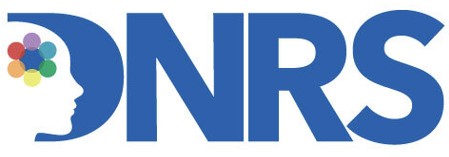Free Yourself From Sensitivities and Embrace a Balanced Life
Food Sensitivities
What Are Food Sensitivities?
Food sensitivities occur when the immune system mistakenly identifies certain foods as threats, triggering an adverse reaction. These sensitivities differ from allergies because they primarily involve the digestive system and don’t produce immediate or life-threatening reactions.
Food sensitivities are far more than just an inconvenience. For many, they disrupt daily life, limit food choices, and cause persistent physical and emotional distress. Unlike food allergies, which trigger immediate immune responses, food sensitivities can result in delayed and unpredictable symptoms. These can range from digestive discomfort, bloating, and headaches to more systemic issues such as fatigue, joint pain, brain fog, and mood disturbances.
Over time, avoiding reactive foods can lead to nutritional deficiencies, social isolation, and even anxiety surrounding eating. If you find yourself constantly worrying about which foods might trigger your symptoms or feel like your list of “safe” foods is shrinking, you are not alone. Many people experiencing food sensitivities feel trapped by their bodies, unable to enjoy meals freely or confidently navigate daily life.
The Connection to Limbic System Impairment
What many don’t realize is that food sensitivities are not solely a digestive issue. They are often linked to an underlying condition known as Limbic System Impairment (LSI) or Central Sensitization (CS). The limbic system, a part of the brain responsible for regulating emotions, sensory processing, and the body’s stress response, can become overactive due to prolonged stress, trauma, infections, toxic exposures, or other chronic health conditions. When this happens, the brain begins perceiving otherwise harmless substances—including foods—as threats.
This creates a cycle of heightened sensitivity where the brain and nervous system react to foods in a way that triggers widespread inflammation, discomfort, and distress. As a result, individuals may develop increasing reactivity to a growing number of foods, making mealtimes stressful and unpredictable.
Regain Your Health
Imagine being able to eat without fear, attend social gatherings without stress, and enjoy the foods you love again. DNRS provides a step-by-step approach to restoring the brain’s healthy function, helping individuals break free from food sensitivities and reclaim their quality of life. By addressing the brain’s role in chronic symptoms, DNRS offers a drug-free, non-invasive solution for those looking for lasting relief from food sensitivities.
Food Sensitivities Treatment with DNRS™
The Dynamic Neural Retraining System™ (DNRS) is a powerful, neuroplasticity-based program designed to help rewire the brain and shift it out of the heightened state of reactivity that underlies food sensitivities. By targeting the root cause—an overactive limbic system—DNRS helps the brain re-establish normal, balanced responses to foods, reducing and even eliminating symptoms over time.
Through structured brain exercises, visualization techniques, and daily practice, DNRS teaches individuals how to calm the nervous system, shift out of fight-or-flight mode, and reprogram the brain’s response to food. Many who have implemented the DNRS program have successfully reintroduced foods they previously reacted to and regained a sense of freedom and confidence in eating.
-
DNRS helps rewire the brain’s response to food by shifting the nervous system out of a chronic fight-or-flight state. By using neuroplasticity techniques, individuals learn to retrain their brain to recognize food as safe again, reducing or eliminating symptoms over time.
-
Results vary from person to person. Some individuals notice changes within weeks, while others may take months of consistent practice to experience significant improvements. Commitment to the daily exercises is key to success.
-
Yes. DNRS is designed to address the root cause of chronic food sensitivities by calming the overactive limbic system. Many individuals who initially reacted to nearly all foods have been able to restore their tolerance through this program.
-
Yes. Many people develop food sensitivities following infections, toxic exposures, or other stressors that impact the nervous system. DNRS is specifically designed to help the brain recover from these types of events by promoting neuroplasticity and healing.
-
No. DNRS is not a diet or elimination program. Instead, it focuses on retraining the brain’s response to food, allowing individuals to expand their diet rather than restrict it further.
-
Yes. DNRS is a safe, drug-free approach that can be used alongside other therapies.
-
DNRS offers various support options, including instructional videos, personal coaching, group programs, and a global community of individuals who have successfully used the program to recover.
Disclaimer
The content in this website is for informational purposes only, and is not a substitute for medical diagnosis, treatment or advice. Please consult a physician or other health care provider prior to using any information or resources contained on or through this website.
